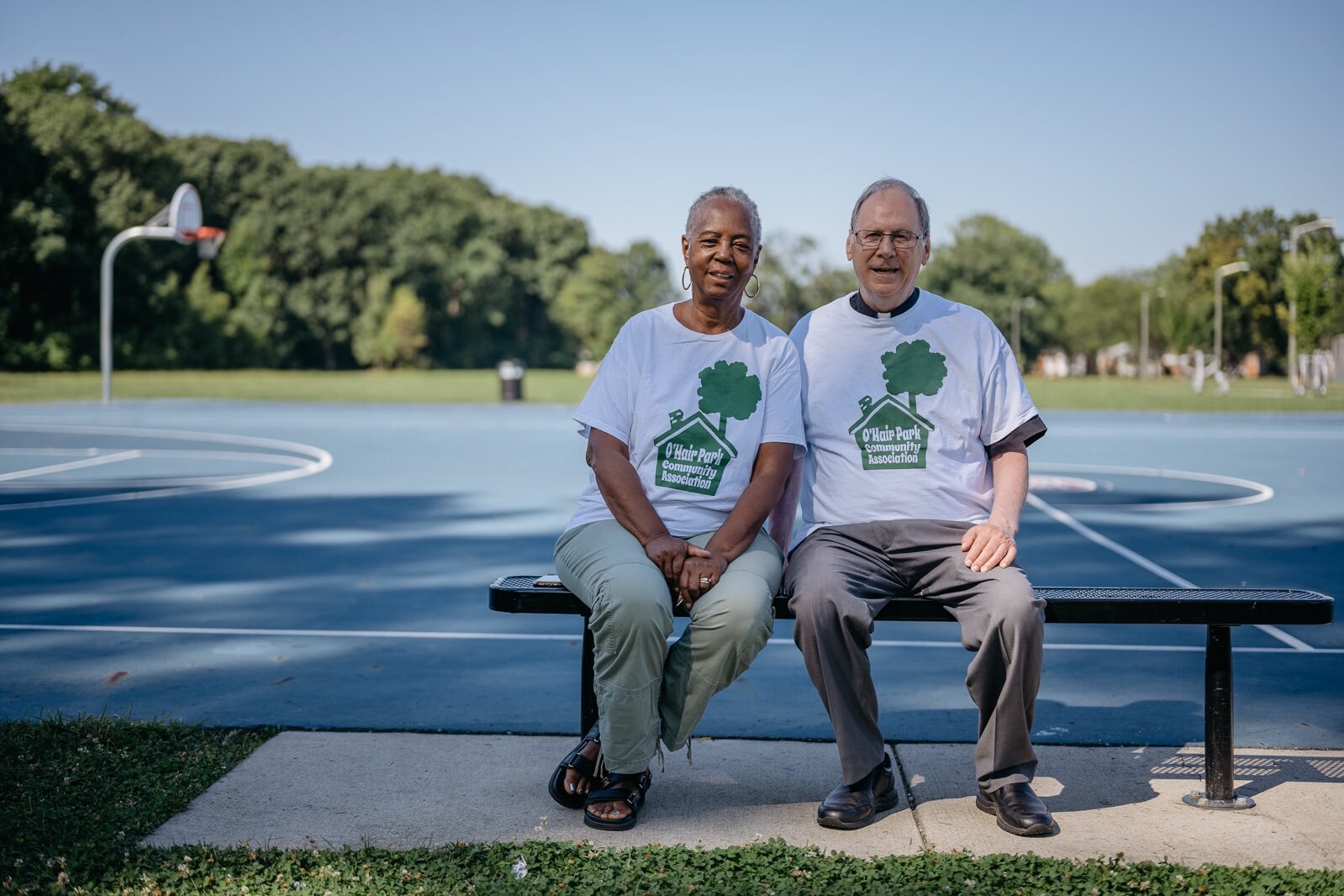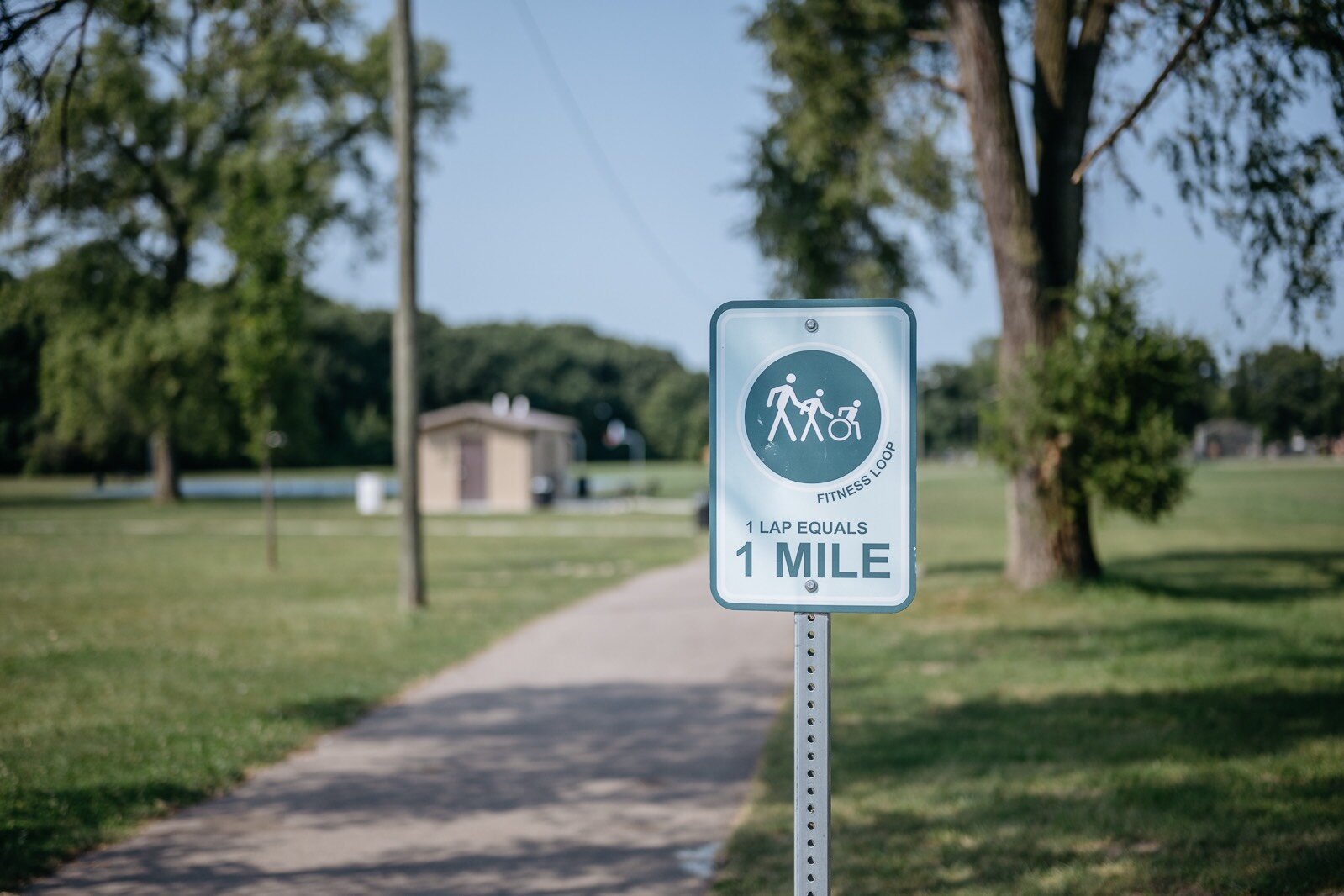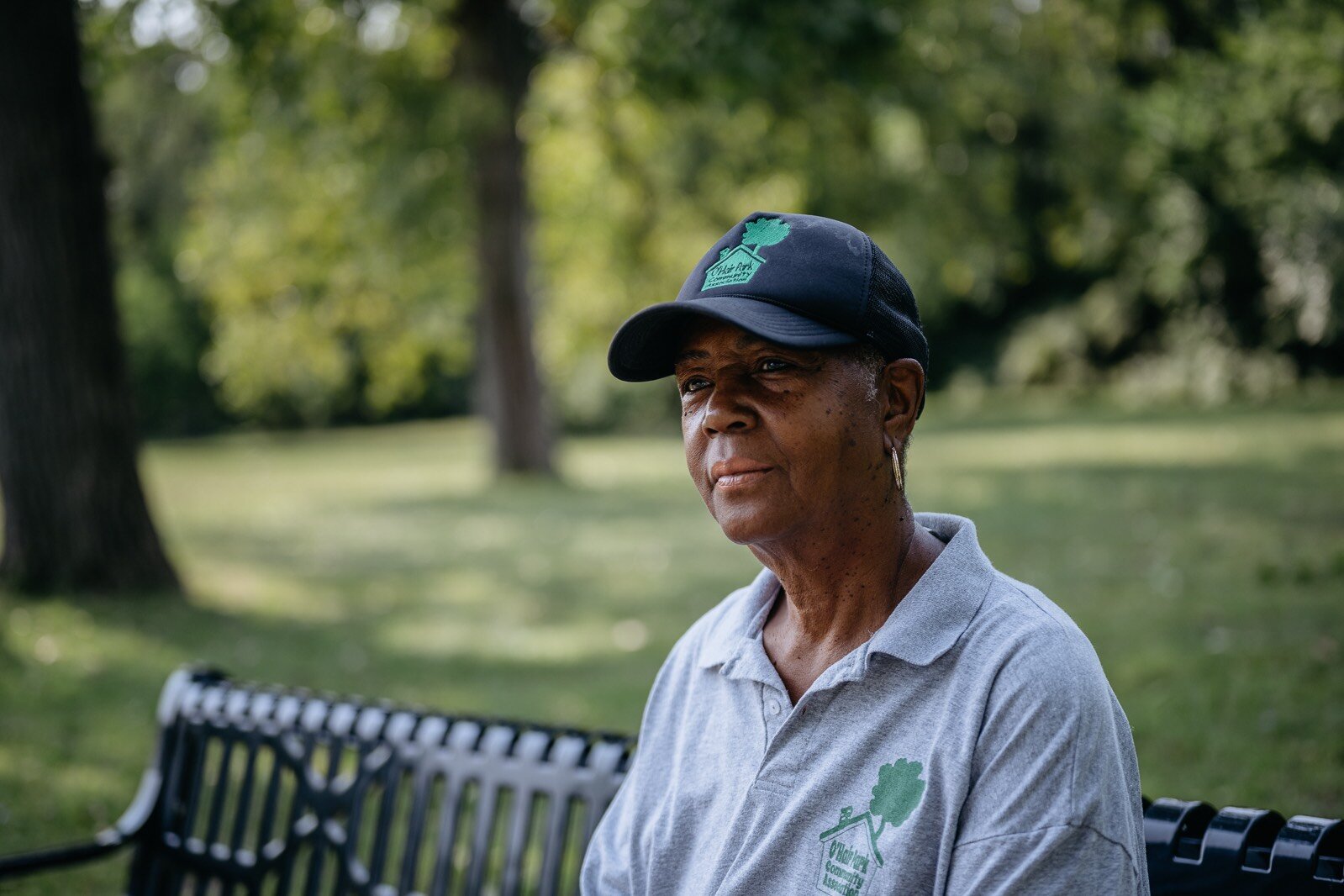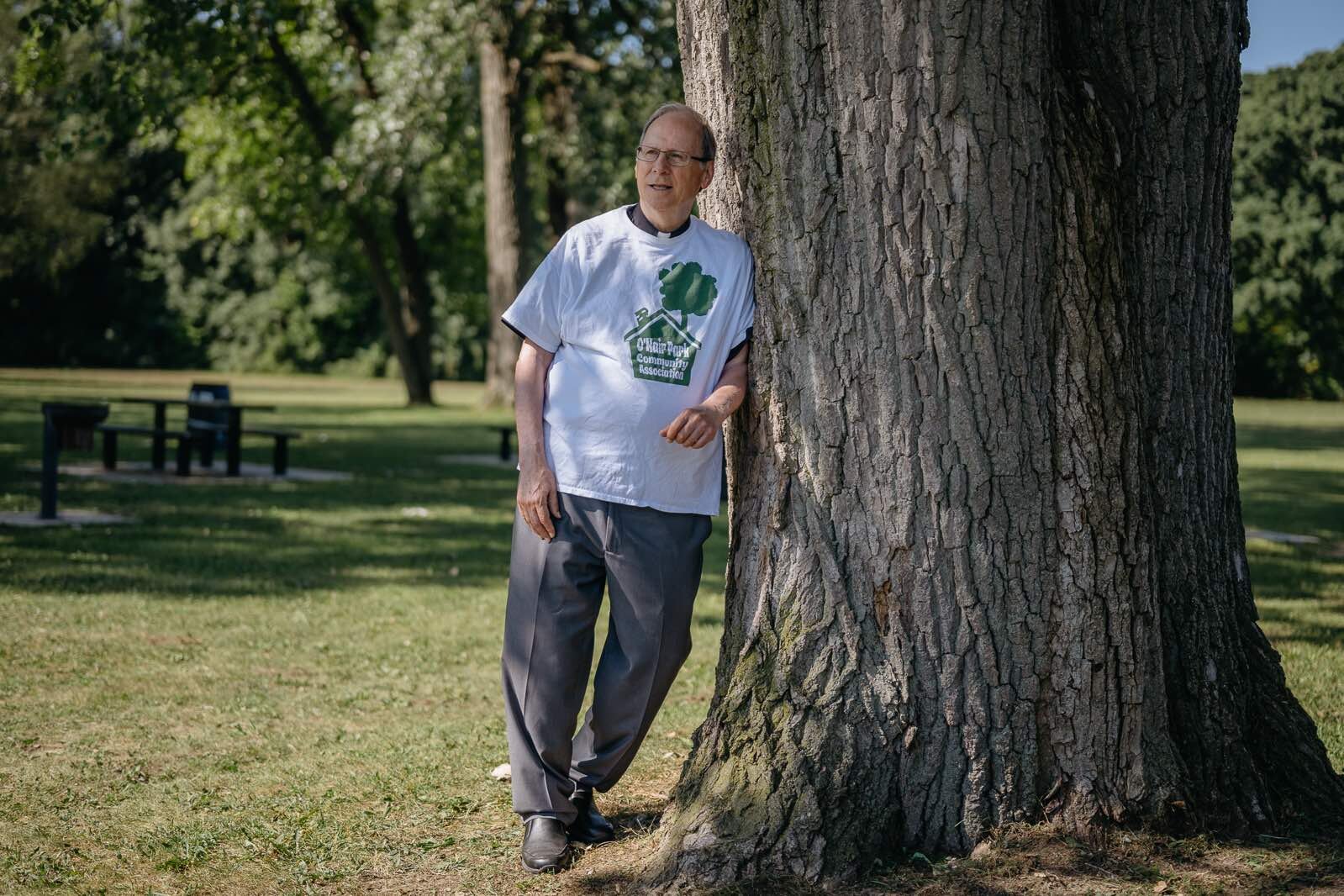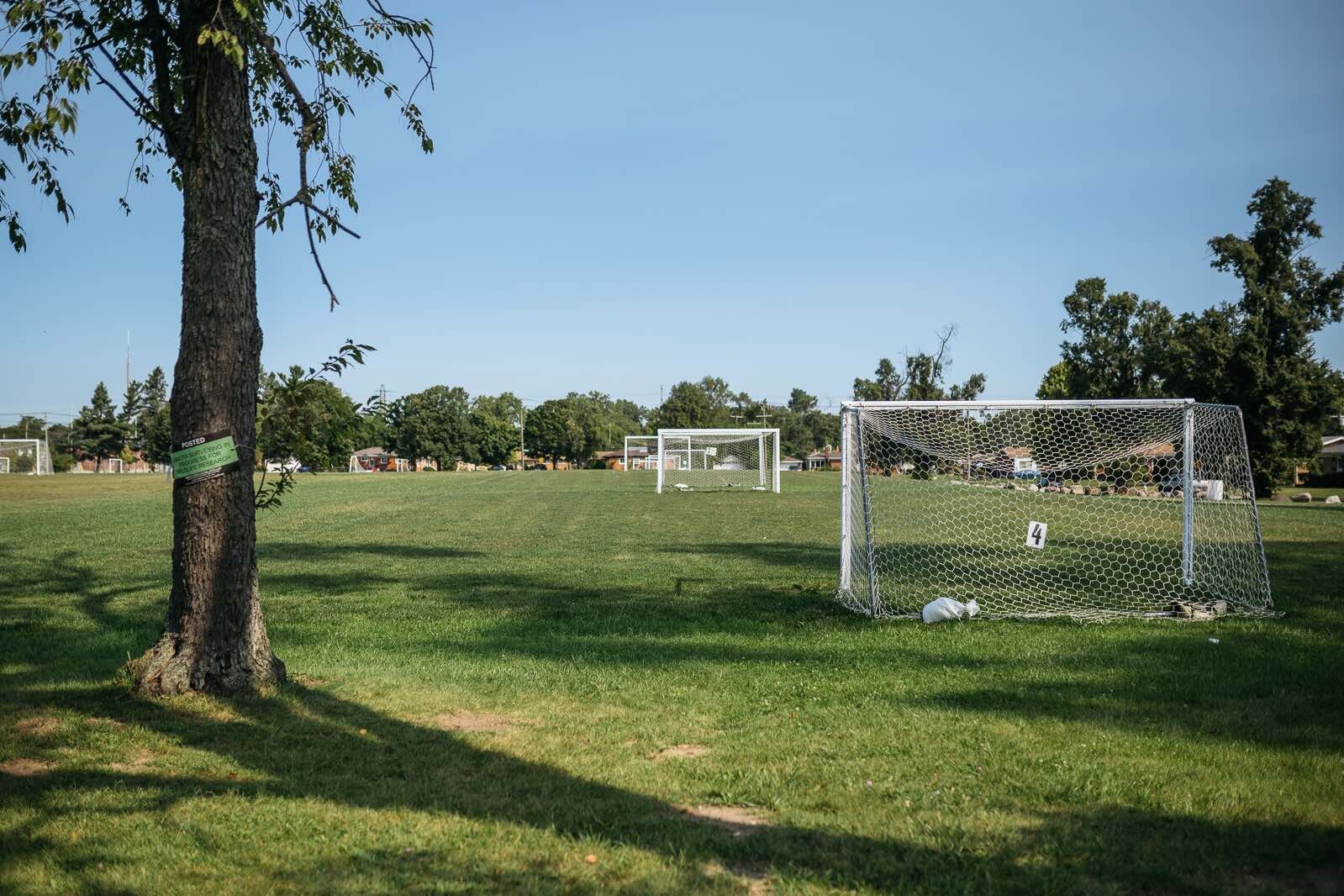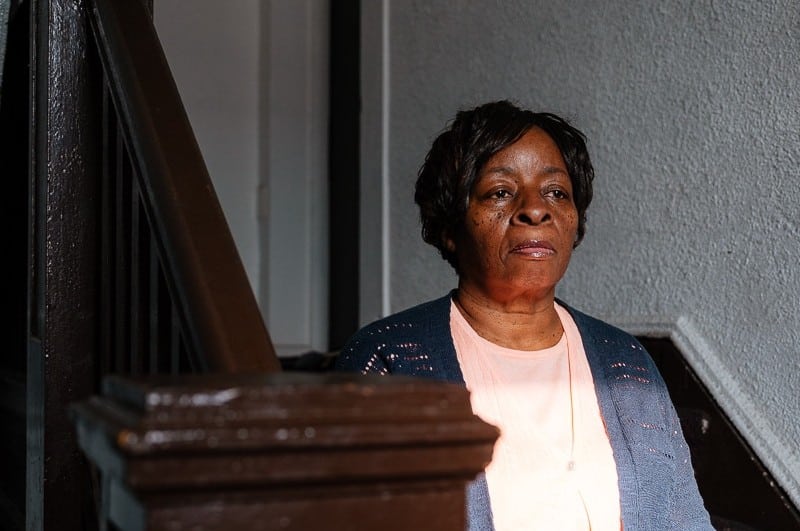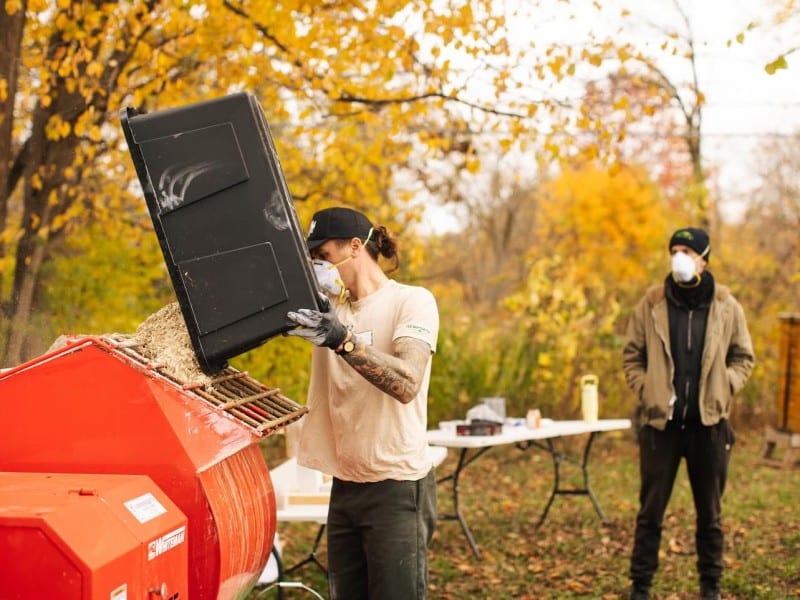O’Hair Park: From a ‘terrible waste of land’ to a neighborhood treasure
The revitalization of Detroit's O'Hair Park neighborhood is symbolic of what individuals and neighborhood drive and spirit can achieve.
For some Detroiters, the houses in their neighborhoods are more than just brick and mortar puzzled together. They’re a complex Rubik’s Cube of community challenges, historical and current, and of resilience over time. This is especially true for many people living in the city’s O’Hair Park neighborhood, where today a brand new home is being built – the first in 50 years.
“We’re becoming the neighborhood we’ve all been looking for,” says Fr. Donald Archambault, the former pastor of Corpus Christi Catholic Church, which is located in the square mile that comprises the O’Hair Park neighborhood. “If you take a piece of coal and you put it under just the right pressure, immense pressure, for years, it turns into a diamond. This is our community here.”
His community is bounded by Southfield Freeway, 8 Mile, 7 Mile and Evergreen Rd., with the city’s 78-acre O’Hair Park as its center jewel. The area has long been in desperate need of revitalization. Issues such as affordable housing, blight and illegal dumping are three longstanding challenges.
The new house, he shares, is a victory after years of engaging community members through the O’Hair Park Community Association (OHPCA), which he galvanized in 2012. The group’s goal has always been to build pride by engaging members and volunteers in social activities, educational sessions and neighborhood beautification events.
“It’s been a journey to get to where we are today,” says Fr. Archambault, who is turning 80 later this year and is affectionately known throughout the neighborhood as “Father Don.”
Witnessing rage turn to compassion
His determination to make a difference in O’Hair Park, a community that is 98% Black, stems from the understanding that he, a white man, gained from “seeing communal Black suffering turn from rage and despair to compassion.”
He explains that it all started when he moved in with a Black family, (in a different Detroit neighborhood) in the late 1960s. He and another young white ministry student were residing on the top floor of the family’s home. The idea was to understand the culture of the Black communities they were serving.
Father Don vividly recalls the family’s matriarch at one time unexpectedly rolling up the carpet and turning on a record player. Then she tried to teach him to dance.
“She tried and tried for a straight hour! Then she told me I had soul below my knees, and nowhere else,” he says. “I come from a wonderful family, but she showed me a type of love that I didn’t know before.”
At one point, the young Father Don also didn’t know what was happening on the first floor of that home during the city’s 1967 uprising. With racial tensions at a peak, there was a Black man in the neighborhood, “a revolutionary type,” who was aggressive in his belief that no white people should be living in the community.
“While we were sleeping comfortably upstairs that week, the father of the household was downstairs with his four kids and wife, with a gun in his hand,” Father Don recalls. “Because there was no way he was going to make us leave his house. He loved us.”
That experience hit home for him, and much later when he became pastor of Corpus Christi he knew he had to do something for O’Hair Park residents. After raising $30,000 from the church, Father Don was able to establish the community association.
Driving neighborhood change
For about 12 years now, its members and volunteers have been the backbone for numerous community clean-ups, family friendly events, community business outreach, and more. Their Lovable Lots program is becoming a vehicle for transforming vacant, blighted lots into safe, welcoming spaces – think green gardens, work from local artists, and play areas where neighbors can get to know and support each other.
Most notably, OHPCA was able to work with the City of Detroit to take down an old abandoned school building that was once known as Pitcher Elementary. Also, a few years ago when Mayor Mike Duggan announced his interest in revitalizing city neighborhoods, OHPCA members set out to make their community heard and seen. The result was a monumental $2 million revamp of the previously neglected O’Hair Park – which happens to be the fourth largest public park in the city.
By Father Don’s side has been Joyce Daniel who has lived in O’Hair Park since 1976. The retired Detroit Police Sgt. – and current OHPCA vice-president – says the park’s transformation has definitely inspired more community cohesion.
“Back in the day, when I’d walk my son to school, it would always cross my mind that the park was a terrible waste of land,” she said. “There was only a sliding board that was installed in the 50s and some swings, and not much else. It was a sad place.”
Today, Daniel is proud to say that the OHPCA “managed to shake down the city for a real park,” and that you don’t need to look far for happy faces. Among the park’s growing appeal are eight soccer fields, four baseball fields, two playgrounds with slides and jungle gyms, two shelters, and a fitness loop. Dance classes, drumming sessions and yoga are just some of the special programming that neighborhood residents have enjoyed there.
Last month, a number of residents gathered there to take part in Arise Detroit Neighborhood Day festivities. Arise Detroit is on the forefront of addressing the real life struggles that residents living in marginalized communities, such as O’Hair Park, face. Neighborhood blight, unemployment, crime and youth violence, drug abuse, and domestic abuse are some of the issues on their radar. For many residents in attendance it was an impactful way to celebrate their neighborhood – and learn about their part in its revitalization.
“We’re going from night to day,” Daniel says. “Our community is full of potential and it’s been wonderful to see more people getting involved and caring.”
Envisioning the future
One of OHPCA’s mottos is Block by Block…One Square Mile Strong. One member, Colleen Flaherty, shares that they’re envisioning a block leader on every block. The benefits would be twofold, but the positive results of such a pipeline could be numerous.
“They could share information so that everybody knows what’s going on,” Flaherty says. And, if there are wider issues or things that they find out about, we can then better work together to help address them.”
She reports that O’Hair Park residents are excited for the future. The park’s transformation is just one symbol of what’s possible.
“They’ve seen really old buildings, which had been closed and truly falling apart for years, finally taken down,” she said. “Then they’ve seen places like Michigan Health and Human Services, and the Wayne Integrated Health Network, go up in their place.”
Currently, the land that one demolished building sat on is now being held by the City of Detroit for the O’Hair Park neighborhood. There are plans to build a much-needed home for seniors there. With affordable housing continuing to be a concern, it’s a cause for excitement.
“Affordable housing not only fills vacant spaces. It reenergizes neighborhoods and provides a sense of security and community,” says Kenneth Jones.
Jones, a second-generation contractor, is overseeing the building of the community’s first new home in 50 years, and adds that more affordable housing could be a gamechanger. He’s estimating the new house selling for about $180,000.
He’s proud that OHPCA reached out to him to be part of the community’s history, and hopes that more Detroiters will come forward to help them.
“They put their foot to the fire and go ahead and make it happen. They prove everything they say they’re gonna do,” Jones says. “The proof is in the pudding, and I would be involved in anything that organization does moving forward.”
Resilient Neighborhoods is a reporting and engagement series examining how Detroit residents and community development organizations work together to strengthen local neighborhoods. It’s made possible with funding from The Kresge Foundation.
